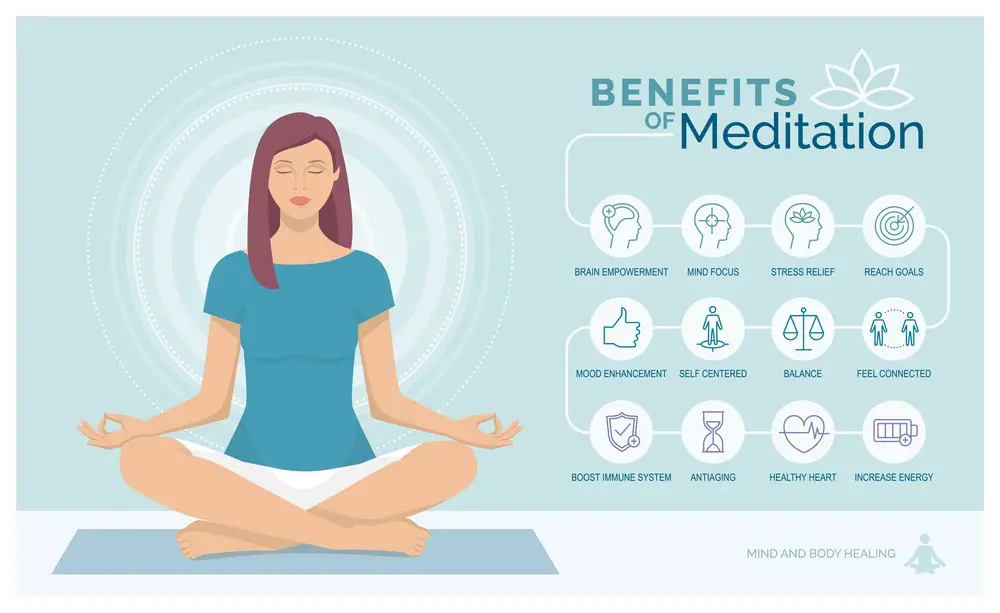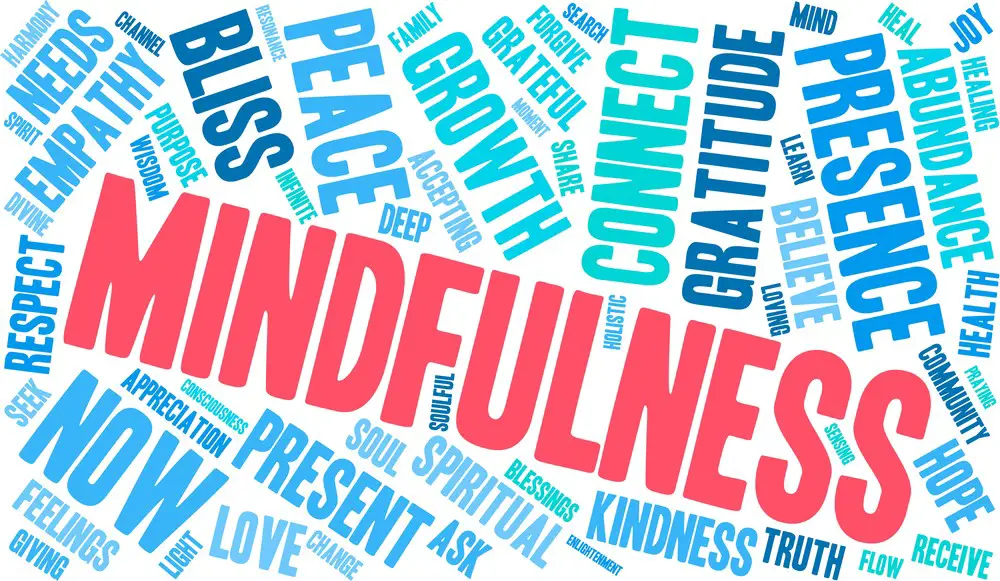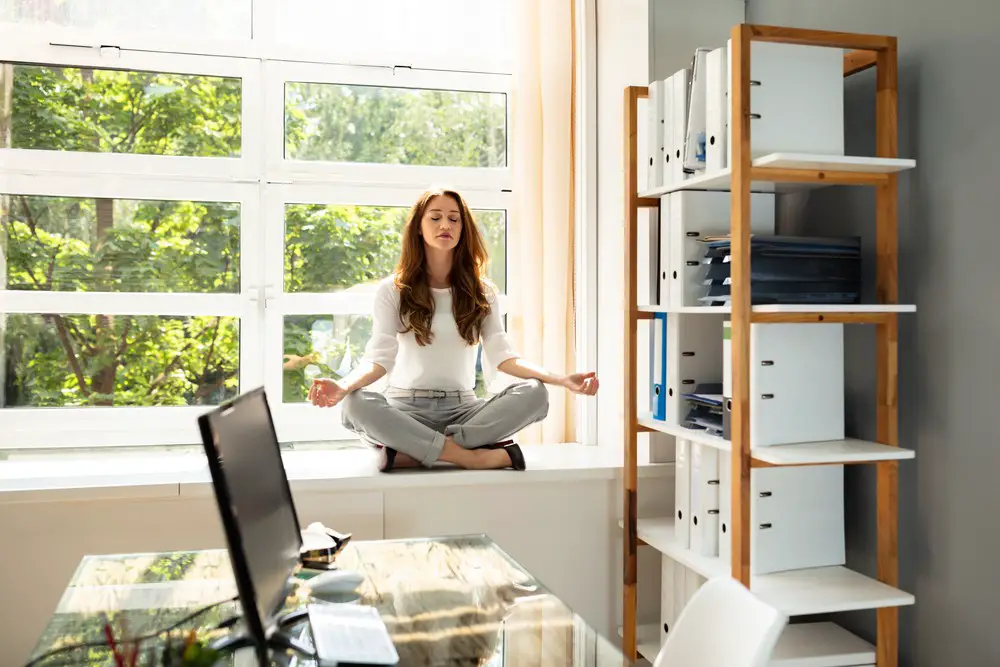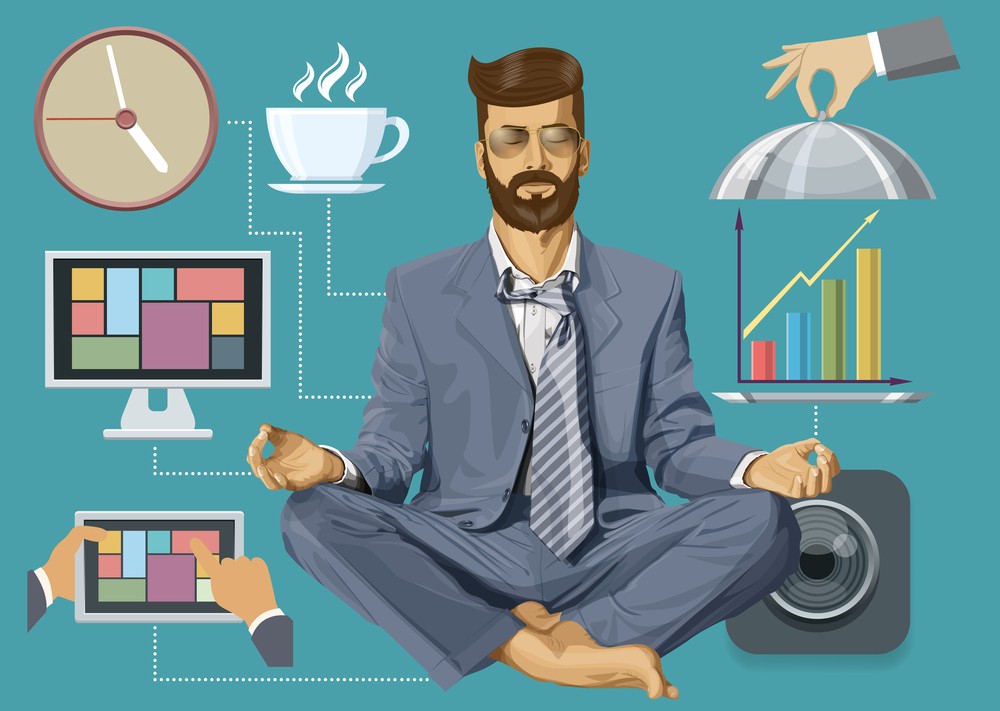As a BetterHelp affiliate, we receive compensation from BetterHelp if you purchase products or services through the links provided
We asked eight experts, including founders and CEOs, to help beginners easily integrate meditation into their daily routine for their best advice. From starting small with focused breathing to practicing mindfulness through eating, here are the top eight tips these leaders shared on making meditation a part of your everyday life.
- Start Small with Focused Breathing
- Meditate Upon Waking
- Make Meditation a Daily Habit
- Combine Meditation with an Existing Routine
- Begin with Breathing Exercises
- Use Guided Meditations
- Create a Mini-Ritual for Reflection
- Practice Mindfulness Through Eating
Start Small with Focused Breathing
From personal experience, the best way to start is small. I began with just five minutes of focused breathing every morning. Finding a quiet corner in my home, I’d sit down, close my eyes, and breathe, letting my thoughts flow without judgment. This tiny ritual soon became the highlight of my mornings.
Over time, as I felt more at ease, I gradually increased my meditation duration. It’s not about how long you meditate but the consistency and intention behind it. Starting small makes the practice more approachable and sustainable.
Clare Gilbey, Founder, Chakra Practice
Meditate Upon Waking
The easiest way to integrate meditation into a daily routine is to start small. I often advise my clients to begin with just five minutes a day, right after waking up, because our minds are still calm and we have few distractions yet.
Remember, it’s about more than how long you spend seated but the consistency and showing up every day, even if you feel like it. Over time, as you feel the benefits, you’ll naturally want to extend those moments of stillness. And believe me, it’s these small, daily practices that will have a positive ripple effect on the rest of the day and, over time, lead to profound personal growth.
Bayu Prihandito, Psychology Expert, Life Coach, Founder, Life Architekture

Make Meditation a Daily Habit
I’ve found that the easiest way to integrate meditation into a daily routine for beginners is just to make a habit of it. If you can make it a habit, it becomes part of your daily life, and you don’t have to think about it too much.
The hardest thing about meditation is getting started—figuring out what you will do and how long, etc. But once you get in the swing, then it’s just like brushing your teeth or taking a shower, another thing on your list that needs to get done every day.
Gert Kulla, CEO, RedBat.Agency
Combine Meditation with an Existing Routine
For beginners, one of the easiest ways to integrate meditation into your daily routine is to combine it with an activity you’re already doing regularly. Consider incorporating short mindfulness exercises or positive affirmations into your morning and evening skincare routine.
Over time, as you become more comfortable with this practice, you can gradually extend the duration of your meditation sessions. It’s a simple yet effective way to make meditation a part of your daily life!
Diane Howard, RN and Founder, Esthetic Finesse
Begin with Breathing Exercises
One tip is to start small with breathing. If you are a beginner or are finding it hard to get the time to meditate, try starting with 10-15 minutes. Begin with the most common form of meditation—breathing. Do this in a silent and relaxing place. Close your eyes, and spend time breathing deeply, inhaling and exhaling.
It is usual for your mind to wander, and when this happens, focus on the pace of your breaths. Over time, your mind will stop wandering and learn how to stay engaged in the present.
Aaron Winston, Strategy Director, Express Legal Funding
Use Guided Meditations
Start with guided meditations! They’re a fantastic tool, especially for those new to meditation. Think of them as a gentle introduction.
Instead of diving into a meditation on your own, which might feel daunting, a guided session offers direction. A soothing voice—or sometimes even music—will lead you, instructing you on how to breathe, where to focus your thoughts, and sometimes even walking you through calming visualizations. It’s structured, which can be reassuring for beginners. And the best part? There’s a ton of them out there!
Roksana Bielecka, Community Manager, ResumeHelp
Create a Mini-Ritual for Reflection
Meditation is a powerful tool for improving mental health and well-being. Integrating meditation into a daily routine can take time and effort for beginners. A common approach to this would be creating a mini-ritual to feed your soul every day for just 10 minutes.
Pick an activity you enjoy, such as drawing, listening to music, or even journaling, and allocate time each day specifically dedicated to these activities with no distractions or interruptions.
This allows you time for self-reflection and introspection, the foundation for successful meditation practice. Consistently devoting this time meets your need to connect with yourself in soothing activities, providing a foundation on which regular meditation practices can begin building.
Kate Duske, Editor-in-Chief, Escape Room Data

Practice Mindfulness Through Eating
One interesting way in which you can add meditation to your lifestyle is through the practice of mindfulness. This approach mainly broadens their awareness of things, feelings, and sensations. The benefit is that you can apply this technique to any activity, like eating. Since this is a fundamental daily activity for everyone, you can easily integrate meditation into your routine if you adopt the mindful eating technique.
In this case, any food item can work. Let’s say you are eating a bowl of cereal. While taking a bite, close your eyes and feel each sensation as you chew. Feel what the temperature feels like. Experience the sensation of each granule on your tongue. Do you have to put more pressure on your teeth to break the cereal pieces, or is it softer than you expected? What does it taste like? Concentrating on every bite and the physical sensations will calm your mind, make you acutely aware of your movements, and avoid overeating.
Lyle Solomon, Principal Attorney, Oak View Law Group
 Unpacking the Zen: A Closer Look at Expert Tips on Everyday Meditation
Unpacking the Zen: A Closer Look at Expert Tips on Everyday Meditation
Ah, isn’t it just thrilling to glean wisdom from the pros? These meditation maestros serve up a smorgasbord of methods to help you bring a dash of zen into your hustle and bustle. Let’s unravel their advice and sprinkle in a few nuggets of our own.
Start Small with Focused Breathing
Clare Gilbey nails it—simplicity is key. If you’re new to this, you don’t need to go on a meditation marathon. You’re building a habit here, and starting with just five minutes of focused breathing is more than enough.
Quick Tips:
- Set a timer for 5 minutes to avoid constantly checking the time.
- Use the extra few minutes you find throughout the day—like when your coffee’s brewing—to practice this.
Meditate Upon Waking
Bayu Prihandito offers the perfect counterpoint to Clare—timing matters. Waking up is a peaceful moment (hopefully), which makes it ideal for incorporating meditation. You’re already in bed, so why not just sit up, close your eyes, and focus on breathing?
Quick Tips:
- Try not to reach for your phone first thing. It’s tempting but save the scrolling for later.
- Use a gentle alarm that eases you awake, making the transition into meditation smoother.
Make Meditation a Daily Habit
Gert Kulla brings home the importance of consistency. Meditation is like any other habit—the more you do it, the easier it gets.
Quick Tips:
- Create calendar reminders or set alarms to keep you on track.
- A meditation app can be helpful to keep track of your progress.
Combine Meditation with an Existing Routine
Diane Howard’s advice is genius in its simplicity. Tie your meditation to another habit like brushing your teeth or doing your skincare, and it’s much easier to remember.
Quick Tips:
- Use affirmation cards during your skincare routine.
- Focus on your breath while waiting for your coffee to brew.
Begin with Breathing Exercises
Aaron Winston brings it back to basics, suggesting that focused breathing is a perfect starting point.
Quick Tips:
- Use breathing apps to help you find a rhythm.
- When your mind wanders, think of it as a sign to refocus, not as a failure.
Use Guided Meditations
Guided meditations are an excellent bridge into the practice. Roksana Bielecka mentions how these structured sessions can ease the entry for beginners.
Quick Tips:
- There are tons of free guided meditations on YouTube or dedicated apps.
- Start with shorter sessions and work your way up.
Create a Mini-Ritual for Reflection
Kate Duske suggests creating a mini-ritual dedicated to activities that feed your soul, acting as a stepping stone to a more involved meditation practice.
Quick Tips:
- Include elements that engage all senses—candles for smell, soft blankets for touch, etc.
- Silence your phone to avoid interruptions.
Practice Mindfulness Through Eating
Lyle Solomon rounds out the list by discussing practicing mindfulness through something as simple and necessary as eating.
Quick Tips:
- Chew slowly and savor every bite.
- Be present—put away distractions like TV or your phone.
With such a rich array of insights and methods, there’s no one-size-fits-all approach to meditation. The key takeaway? Start small, be consistent, and find what works for you. Soon enough, you’ll find that meditation becomes as routine as brushing your teeth, but the benefits will last a lifetime.
The Healing Journey: Why I Advocate for BetterHelp
After surviving the traumatizing events of 9/11, I took it upon myself to heal through helping others. I’m the primary caregiver of my children and understand from first-hand experience the lonely paths you have to walk as a partner and parent when leaving an unhealthy relationship.
We’re all echoing in a dark space that doesn’t have to be this empty, and that’s been my mission since finding solace and recovery in therapy: To help comfort others who are still in shock and at the prime of their struggle.
I came across BetterHelp after searching for this type of community. I wanted to belong to a body of proactive therapists and supportive therapy veterans that allowed me to see other sides of the story.
It was unconventional, and that’s what attracted me most. During my most challenging times, when my ex-wife completely cut me off from my children, I found comfort and clarity through BetterHelp.
Instead of being chained to a strict therapist recommendation, I was in charge of who I felt understood my struggle most. That’s what allowed me to find my true peace, as I was reunited with those who read behind my words and had first-hand experience with my trauma.
Recovery is a choice; with BetterHelp, that choice will be a few clicks away. You can join their couples-oriented platform Regain.us for those stuck with family estrangement and toxic relationship patterns.
Jacob Maslow: Navigating Complex Waters of Mental Health and Custody Battles ??⚖️
I’m a father who’s faced the grueling experience of being cut off from my children due to an ongoing custody dispute with my narcissistic ex. ? After the breakdown of reunification therapy, my mental well-being took a hit, managed with the help of Lexapro and BetterHelp. ?
Through this hardship, I write about mental health and narcissism to support others in similar straits. ✍️ I also run a legal site to assist those grappling with non-cooperative spouses in legal battles. ⚖️ My daily ritual? Long, soul-cleansing walks to clear my head. ?♂️
While the past year has been tough, I believe anyone can overcome mental health challenges. ?

- 3 Ways Wearing a Hat Can Help Lower Your Stress Levels - April 19, 2025
- Breaking the Silence: Why Men’s Mental Health Matters More Than Ever - April 15, 2025
- How to Transform a Home’s Patio Space into a Relaxing Space - March 23, 2025
This site contains affiliate links to products. We will receive a commission for purchases made through these links.


 Unpacking the Zen: A Closer Look at Expert Tips on Everyday Meditation
Unpacking the Zen: A Closer Look at Expert Tips on Everyday Meditation
